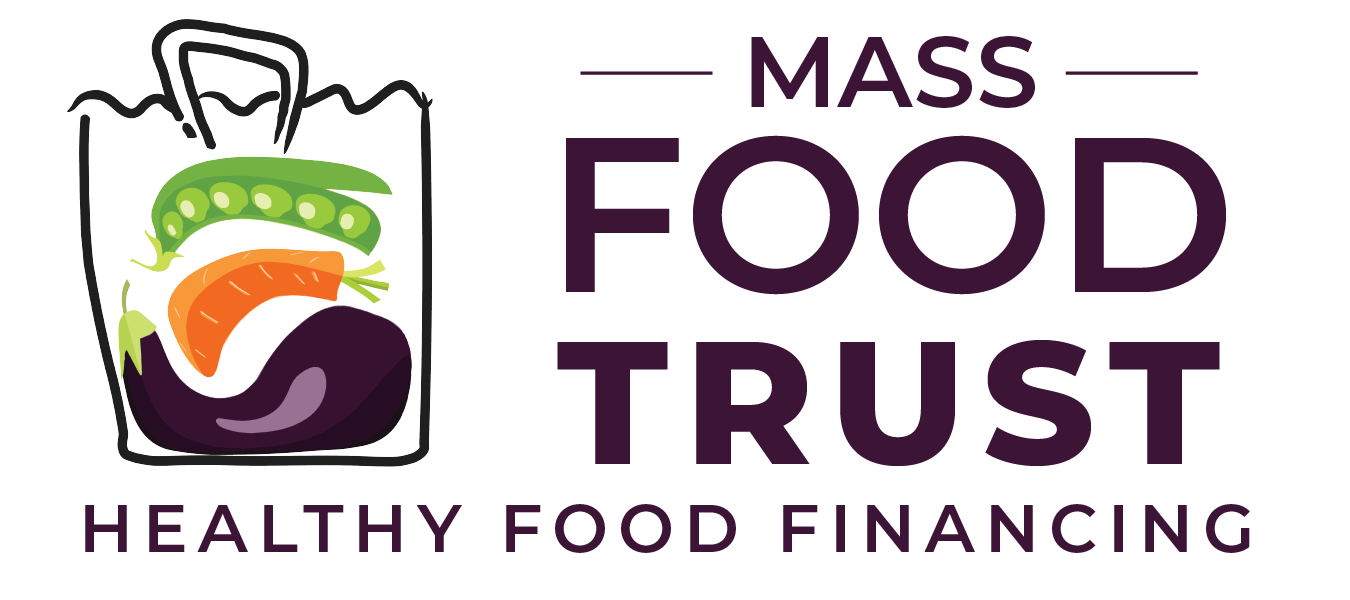Frequently Asked Questions
-
The Massachusetts Food Trust Program (MFTP) provides loans, grants, and business assistance to food retailers for projects that increase access to healthy, affordable food in low- to moderate-income communities where grocery access is limited. Beginning with seed funding from the state and administered by nonprofit partners, the MFTP prioritizes businesses selling fresh food grown, caught, or harvested in MA. The program offers financial and technical support to help businesses that increase food access, create jobs, and stimulate economic investment in urban, suburban, and rural communities across the Commonwealth.
-
The MFTP is overseen and evaluated by the Massachusetts Department of Agricultural Resources (MDAR), and administered by the Local Enterprise Assistance Fund (LEAF) and Franklin County Community Development Corporation (FCCDC), with support from The Food Trust. The program was established by legislation in 2014. After a multi-year advocacy campaign spearheaded by the Massachusetts Public Health Association, the Baker-Polito Administration included $1 million of seed funding for the program in the Fiscal Year 2018 capital budget. The MFTP officially launched in the fall of 2018.
-
All projects must
EXPAND ACCESS to high-quality, affordable, nutritious food in under-invested neighborhoods. Examples: fresh produce, meat, dairy, fish, whole and lightly processed foods (such as frozen veggies)
HAVE A DIRECT-TO-CONSUMER CHANNEL and could include grocery stores, corner stores, coops, farmers markets, food hubs, community kitchens, mobile markets, indoor and outdoor greenhouses, and other infrastructure for gathering, preparing and distributing healthy food for retail in areas that are lower-income and underserved.
ACCEPT SNAP and/or WIC to increase the affordability of their products. For details, please refer to this page.
-
Project types
Projects related to the production, distribution, or sale of free or heavily processed foods
Restaurants and cafés
Food manufacturers of processed products such as snack bars
Food pantries and other emergency food outlets
Project costs
General operations and maintenance expenses including rent, salaries, utilities, and inventory
Reimbursement for project costs already incurred or for separate completed projects
-
Yes. An existing store or project may be eligible if financing would help it renovate or expand in order to substantially improve its ability to provide access to nutritious food in qualified areas.
-
Applications will be evaluated on a rolling basis while funds remain available. When an application is received, program partners will assess the proposed project to see if it meets the eligibility criteria. The program strives for a diversity of projects and project locations: in urban, suburban, and rural areas across the Commonwealth.
-
For details, please refer to this page.
-
Item description
-
Item description
-
Item description
-
Item description
-
Item description
-
-
Item description
-
The MFTP program provides loans, grants, and business assistance.
Financing packages may include loans, grants, and other funding tools on a case-by-case basis to appropriately meet the needs of each project. Each eligible application will be underwritten and assessed for financial viability.
-
-
Loans range from $15,000 to $300,000, although the MFTP Administrators may be able to provide additional loans from other sources. Grants range from $5,000 to $25,000.
* Please note that while we offer grants ranging from $5,000 to $25,000, grants at the top of this range are intended to be used in conjunction with a loan from the Mass Food Trust. Grants in the middle to the lower range are available for projects that don’t require a loan.
-
The amount and type of financing and grant offered depends on the availability of funds within the program at the time of application, the borrower’s need and ability to fulfill financial obligations, and the project's size and expected impact on the community it serves.
-
Grants and loans can be used for equipment and other capital expenses, real estate, tenant improvement and infrastructure, and working capital.
-
Audits or design work for projects without clear linkage to a future loan
General operations and maintenance expenses for existing projects (operating expenses for new projects are eligible)
Reimbursement for project costs already incurred for completed projects
-
Yes. Where appropriate, some applications will be approved for a grant only, or for both a grant and a loan simultaneously. However, most grant funds will be used to pay for business and technical support to strengthen a business plan or help create financial projections in order for a loan to be approved. Most grants will be linked to a loan.
-
Yes. However, grant-funded business and technical support will be prioritized for those businesses where financing in the future is anticipated.
-
Yes, but the MFTP Administrators will need to approve any such provider.
